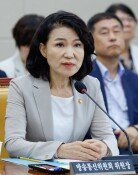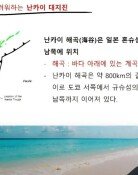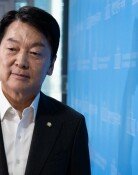No Uniform Corporate Governance
No Uniform Corporate Governance
Posted March. 25, 2004 22:11,
The government will not provide a uniform model of corporate governance for domestic conglomerates, Deputy Prime Minister and Finance and Economy Minister Lee Hun-jai announced Thursday.
Mr. Lee attended the joint meeting between the Economic Policy Committee and the Finance Taxation Committee under the Federation of the Korean Industries (FKI) held in Palace Hotel in southern Seoul yesterday. He gave this answer to strong complaints about British and American-style corporate governance raised by industries, FKI reported.
Mr. Lees words represent the governments shifting stance on corporate restructuring, given that the incumbent administration has been stressing the importance of corporate structure reform since its inauguration. This issue has caused continuous friction between the government and businesses.
So far, businesses have called on the government to abolish its policy on money investment restriction. As to this issue, Mr. Lee added that while the government sticks to its original position under the economic market reform roadmap, it will make great efforts not to hurt actual investments to the industry due to money investment restriction policy.
Transparency and accountability are imperative to enhance the value of enterprise and
awaken social recognition of enterprises and stabilize the relations between labor and management, Mr. Lee said. He emphasized the importance of upholding law and principle in issues surrounding labor and management.
Meanwhile, the Federation of the Korean Industries (FKI) urged the deputy prime minister to come up with measures for the sake of entrepreneurship.
Since the financial crisis, most companies have turned toward secure investments, where they make investments only after a certain sign of economic recovery is guaranteed, the FKI said. As a result, the annual investment rate of the top 600 domestic companies decreased to 3.6 percent, less than a fifth of the figure before the financial crisis, and the scale of facility investment was reduced to 60 trillion won, the level at which it has remained for eight consecutive years since 1996, it added.
According to the survey of officials in charge of investment from the top 26 domestic firms by the FKI, the main factors of investment inactivity was illegal labor dispute and high wages exceeding productivity. Anti-corporate sentiment, abolishment of conglomerates restructuring department, and reintroduction of money investment restriction policy were also included.
To encourage further investment, the Federation of the Korean Industries made some proposals including the repeal of core regulation clauses of money investment restriction policy in the metropolitan area, the restraint of civic groups and labor unions, and the overall immunity of previous window dressing.
Won-Jae Lee Jong sik Kong wjlee@donga.com kong@donga.com




![[속보]트럼프 “한국, 자국 방위비 부담해야”](https://dimg.donga.com/c/138/175/90/1/wps/NEWS/IMAGE/2025/07/09/131965217.1.jpg)


